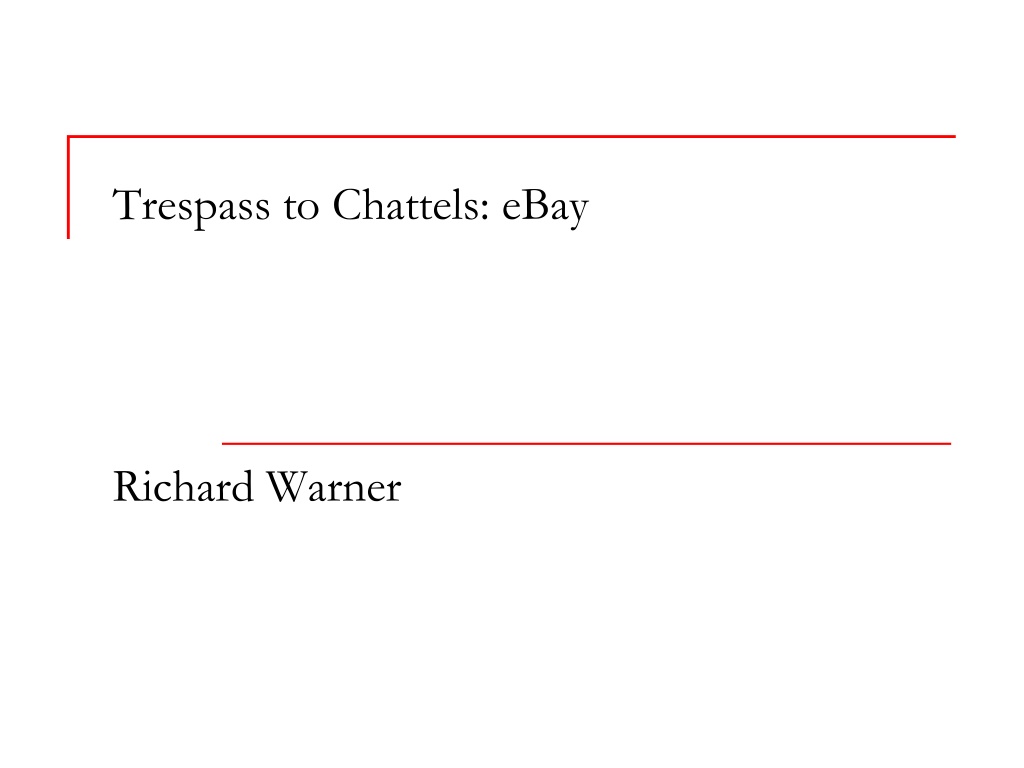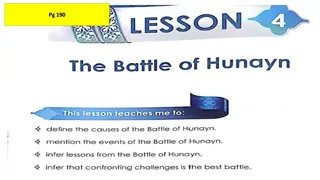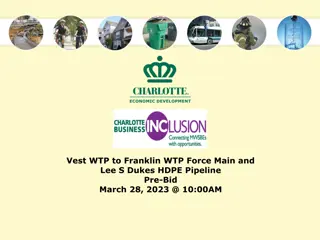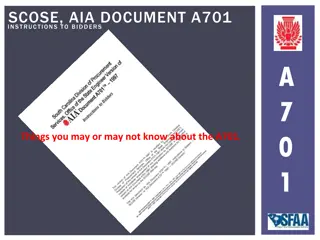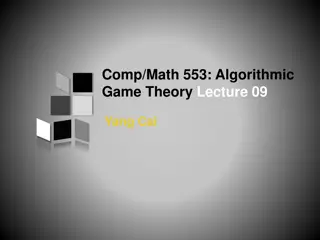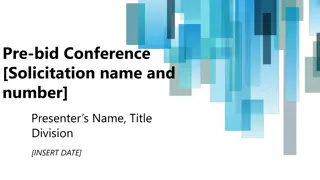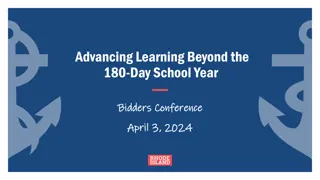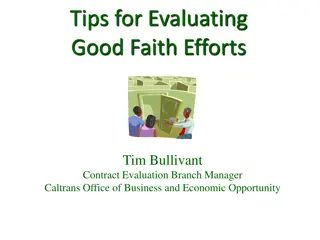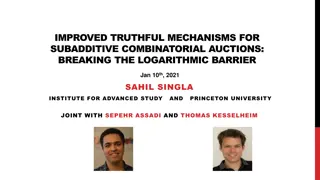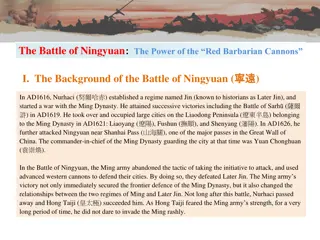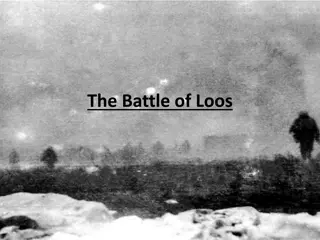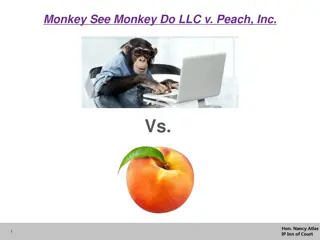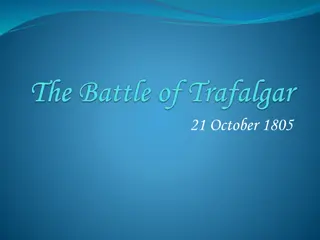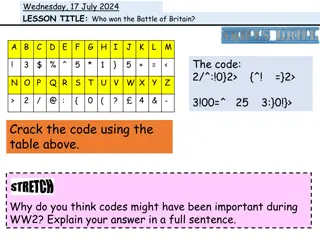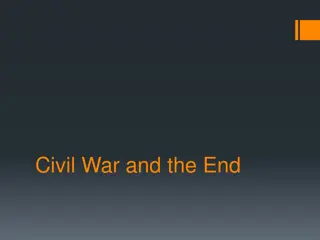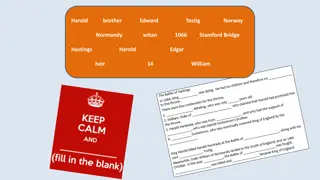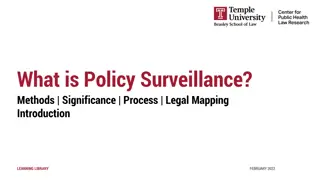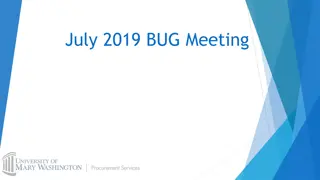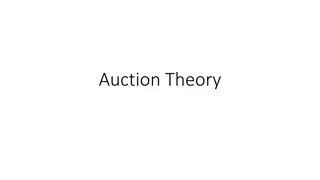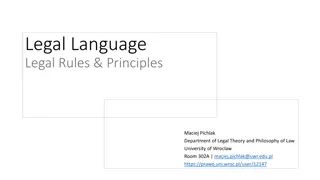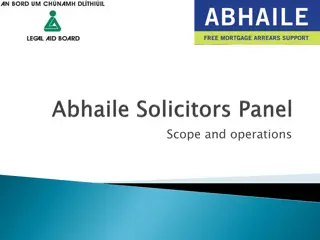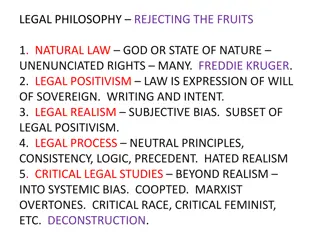The Legal Battle Between eBay and Bidder's Edge
The legal dispute between eBay and Bidder's Edge revolves around Bidder's Edge utilizing software robots to aggregate listings from multiple auction sites, including eBay. eBay revoked Bidder's Edge's access, citing unauthorized activity and offering to license their actions. The underlying business threat for eBay involved the potential inaccuracies in Bidder's Edge's information and the impact on eBay's network effect revenue model. The clash raises important questions about data access, consent revocation, and competitive dynamics within online auction platforms.
Download Presentation

Please find below an Image/Link to download the presentation.
The content on the website is provided AS IS for your information and personal use only. It may not be sold, licensed, or shared on other websites without obtaining consent from the author. Download presentation by click this link. If you encounter any issues during the download, it is possible that the publisher has removed the file from their server.
E N D
Presentation Transcript
Trespass to Chattels: eBay Richard Warner
eBay v. Bidders Edge (N.D. Cal. 2000) eBay is an auction web site on which sellers list items for sale, and prospective buyers post bids and track the status of auctions. eBay is by far the largest of hundreds of similar sites. Bidder s Edge was another auction site. To understand its business plan, you need to understand the price comparison dilemma auction sites created.
The Price Comparison Dilemma The large number of sites creates a dilemma for buyers. Should a buyer search one site, or a few sites, and settle for the best combination of price and quality the limited search reveals? Or, is a broader search worth the extra effort? Bidder s Edge proposed to solve this dilemma.
Bidders Edge Bidder s Edge allows a buyer to perform a single search on its site, where that search yields a list of all relevant items for sale on over one hundred other auction sites. Bidder s Edge accomplishes this feat through software robots that automatically search the Internet for relevant information.
The Common Fact Pattern Scattered data Benefits at least some consumers Collected organized data
Revocation of Consent Bidder s Edge refused to meet eBay s request. eBay informed Bidders Edge that it was no longer authorized to access eBay. On November 9, 1999, eBay sent BE a letter reasserting that BE s activities were unauthorized, insisting that BE cease accessing the eBay site, alleging that BE s activities constituted a civil trespass and offering to license BE s activities.
The Business Threat Background facts: eBay and Bidder s Edge had a license agreement that allowed Bidder s Edge to search eBay. That agreement was about to expire, and they were negotiating a new agreement. eBay insisted that Bidder s Edge make it clear that its information may not be accurate. Bidder s Edge refused and eBay sent the revocation letter. To understand why, we need to understand the business threat Bidder s Egde posed to eBay.
The Threat to eBays Network Effect eBay makes money because of a network effect. Sellers use eBay because most buyers do. Buyers use eBay because most sellers do. So sellers use eBay because buyers do, which ensures that new and old buyers will continue to use eBay, which ensures that new and old buyers will continue to use eBay . . .
Why People Use eBay Sellers use eBay because most buyers do. Buyers use eBay because most sellers do. So sellers use eBay because buyers do, which ensures that new and old buyers will continue to use eBay, which ensures that new and old buyers will continue to use eBay . . .
If Bidders Edge Succeeded eBay s network effect could disappear. It would not matter where a seller posted because buyers would find it on Bidder s Edge. eBay s response: eBay wanted Bidder s Edge to make it clear that the information on its site may not be as accurate as the information on eBay. Apparently, eBay thought this protected its network effect enough.
Trespass to Chattels (Personal Property) One is liable for trespass to chattels if one intentionally, and without authorization, uses the property of another in a way that impairs its value, or harms a protected interest.
The Court on Consent Probably no implied consent in the first place. eBay does not generally permit the type of automated access made by BE. In fact, eBay explicitly notifies automated visitors that their access is not permitted. Revocation effective anyway. Moreover, eBay repeatedly and explicitly notified BE that its use of eBay's computer system was unauthorized. Bidder s Edge continued to attempt to access the eBay site.
The Court on Impairment of Value BE argues that its searches represent a negligible load on plaintiff s computer systems, and do not rise to the level of impairment to the condition or value of eBay's computer system required to constitute a trespass.
Impairment of Value However, it is undisputed that eBay s server and its capacity are personal property, and that BE s searches use a portion of this property. Even if . . . its searches use only a small amount of eBay s computer system capacity, BE has nonetheless deprived eBay of the ability to use that portion of its personal property for its own purposes. The law recognizes no such right to use another's personal property (emphasis added).
The Breadth of the Right Consider: Any access to a server for any purpose uses some portion of that personal property for that purpose. Thus: any unauthorized use impairs value. So: a system owner can turn any access into a trespass simply by informing the other party that such access is no longer authorized.
Buchanan Marine v. McCormack Sand The defendant moored its barges to the buoy the plaintiff built and maintained for use by its tugboats. (743 F. Supp. 139 (1991)). The court found a trespass to chattels and issued an injunction without requiring the plaintiff of show any harm other than being deprived of the use of its property. It did not matter whether the plaintiff desired to use the buoy at the time the defendant was using them.
Private Property It was the potential deprivation that mattered. The buoy did not become available for use by others as soon as the owner was not using it. To hold otherwise would be inconsistent with the fact that the buoy is private property. An owner of private property has the right, within broad limits, to decide that no one shall use the property.
Critics of Trespass Mark Lemley contends that the courts failed to grasp the real issue. The courts saw the issue as one of personal property: Does an Internet system owner have the right to control access to the computer equipment? Lemley insists that the issue was information. The cases were really efforts to control the flow of information to or from a site. Mark A. Lemley, Place and Cyberspace, 91 Cal. L. Rev. 521, 529 (2003).
The Consequences for the Internet First: The growth and vitality of the Internet depend on e-mail communication, hyperlinking, and the search-engine index. Second: These features thrive on implied- permission access. Third: Recognizing a right to prevent access potentially reduces implied-permission access and hence threatens the growth and vitality of the Internet.
